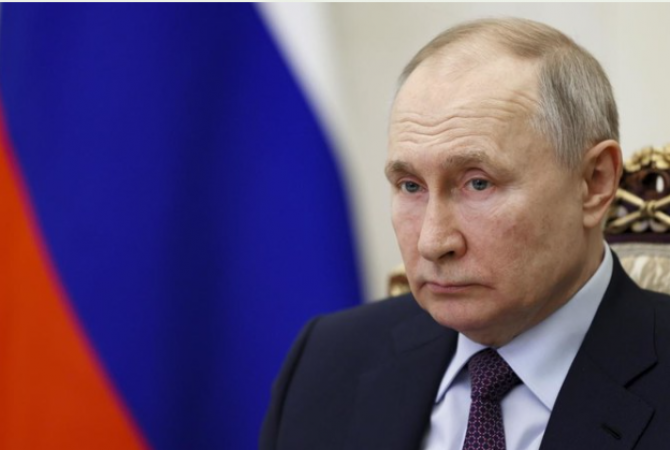
USA: An international arrest warrant for President Vladimir Putin makes it more likely that the man whose nation invaded Ukraine will be brought to justice, but it makes it more difficult to put an end to that war through negotiations.
The International Criminal Court's decision to seek the Russian leader's arrest on March 17 was motivated by the paradoxical relationship between justice and peace, which today appears to be only a remote possibility.
The Hague judges discovered "reasonable grounds to believe" that Putin and his children's rights commissioner were accountable for war crimes, specifically the forcible removal and illegal transfer of children from occupied areas of Ukraine to Russia.
Also Read: Muslims and Christians in Burkina Faso support cooperation amid insurgency
As unlikely as Putin appearing in a Hague courtroom right now may seem, other world leaders have taken international courts to task.
After losing power, former Serbian dictator Slobodan Milosevic, who was a major factor in the 1990s Balkan wars, was brought before a United Nations tribunal in The Hague for war crimes, including genocide. Before a decision could be made in 2006, he passed away in his cell.
One of the nations that has criticized the ICC's action is Serbia, which seeks membership in the European Union but has maintained close ties to Russia. According to populist Serbian President Aleksandar Vucic, the warrants "will have bad political consequences" and lead to "a great reluctance to talk about peace (and) about truce" in Ukraine.
Others believe that the main goal of international action should be to impose penalties on Putin and anyone else found guilty of war crimes.
In a speech to commemorate the one-year anniversary of the liberation of Bucha, the Ukrainian town that witnessed some of the worst atrocities in the war, European Union leader Ursula von der Leyen declared, "There will be no escape for the perpetrator and his henchmen." "War criminals will answer for their actions," the statement reads.
Also Read: Republicans criticize the criminal justice system while defending Trump
Hungary opted not to sign the resolution in favor of Putin's ICC arrest warrant along with the other 26 EU members. Gergely Gulyas, the chief of staff for the government, asserted that if Putin entered Hungary, police would not detain him.
Because they lead to escalation rather than peace, he described the warrants as "not the most fortunate."
Putin seems to have a firm grasp on the reins of authority, and some analysts believe the arrest warrant that is out for him might encourage more fighting.
According to Daniel Krcmaric, an associate professor of political science at Northwestern University, "the arrest warrant for Putin might undermine efforts to reach a peace deal in Ukraine."
The International Criminal Court's Ukraine investigation could be suspended for a year at the request of the UN Security Council, as permitted by Article 16 of the Rome Statute treaty that established the court. This could pave the way for peace negotiations.
But that seems unlikely, according to Krcmaric, whose book "The Justice Dilemma" explores the conflict between pursuing justice and attempting to resolve conflicts through negotiation.
He added that Ukraine is also unlikely to support such a move, saying, "The Western democracies would have to worry about public opinion costs if they made the morally dubious decision to trade justice for peace in such an explicit fashion."
The warrants were immediately rejected by Russia. Dmitry Peskov, a spokesman for the Kremlin, stated that Moscow does not recognize the ICC and finds its rulings to be "legally void." Additionally, Dmitry Medvedev, the vice-president of Russia's Security Council, which is presided over by Vladimir Putin, suggested that the International Criminal Court's headquarters on the Dutch coast might be a target for a Russian missile attack.
In a commentary, Carnegie Endowment analyst Alexander Baunov noted that the arrest warrant for Putin amounted to "an invitation to the Russian elite to abandon Putin" and might reduce their support for him.
Also Read: First trip to Egypt by the Syrian foreign minister in over a decade
Rights organizations welcomed the arrest warrants for Putin and his child rights commissioner, but they also urged the international community to not overlook the fight for justice in other conflicts.
Balkees Jarrah, associate director of international justice for Human Rights Watch, said in a statement that "the ICC warrant for Putin reflects an evolving and multifaceted justice effort that is needed elsewhere in the world." To guarantee that victims' rights around the world — whether in Afghanistan, Ethiopia, Myanmar, or Palestine — are respected, similar justice initiatives are required elsewhere.